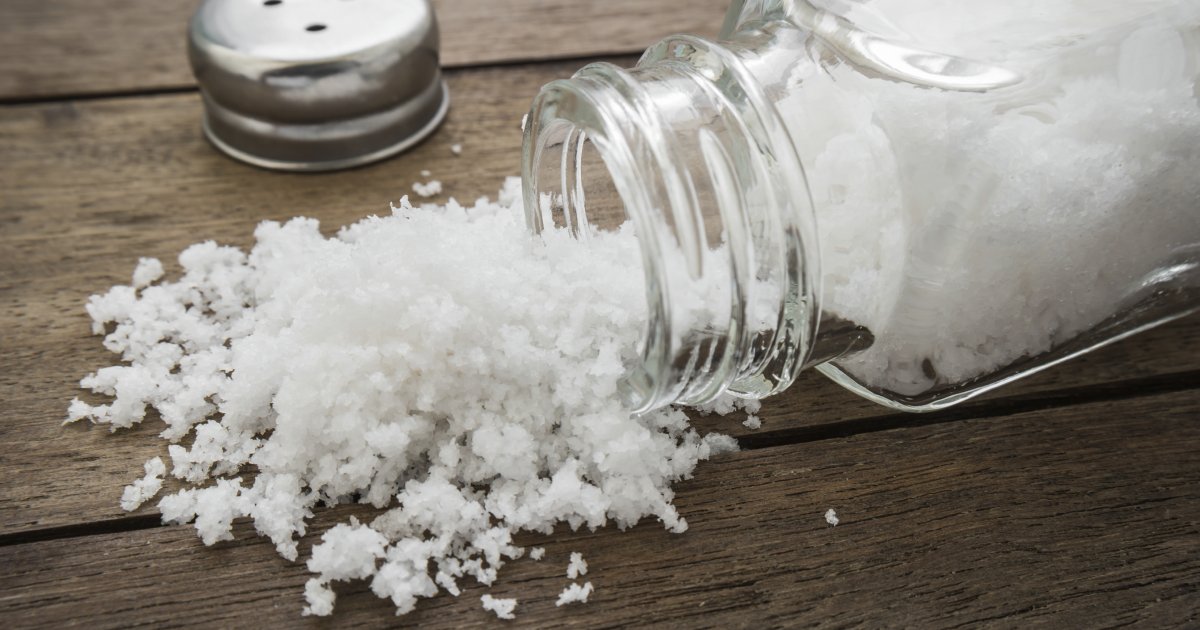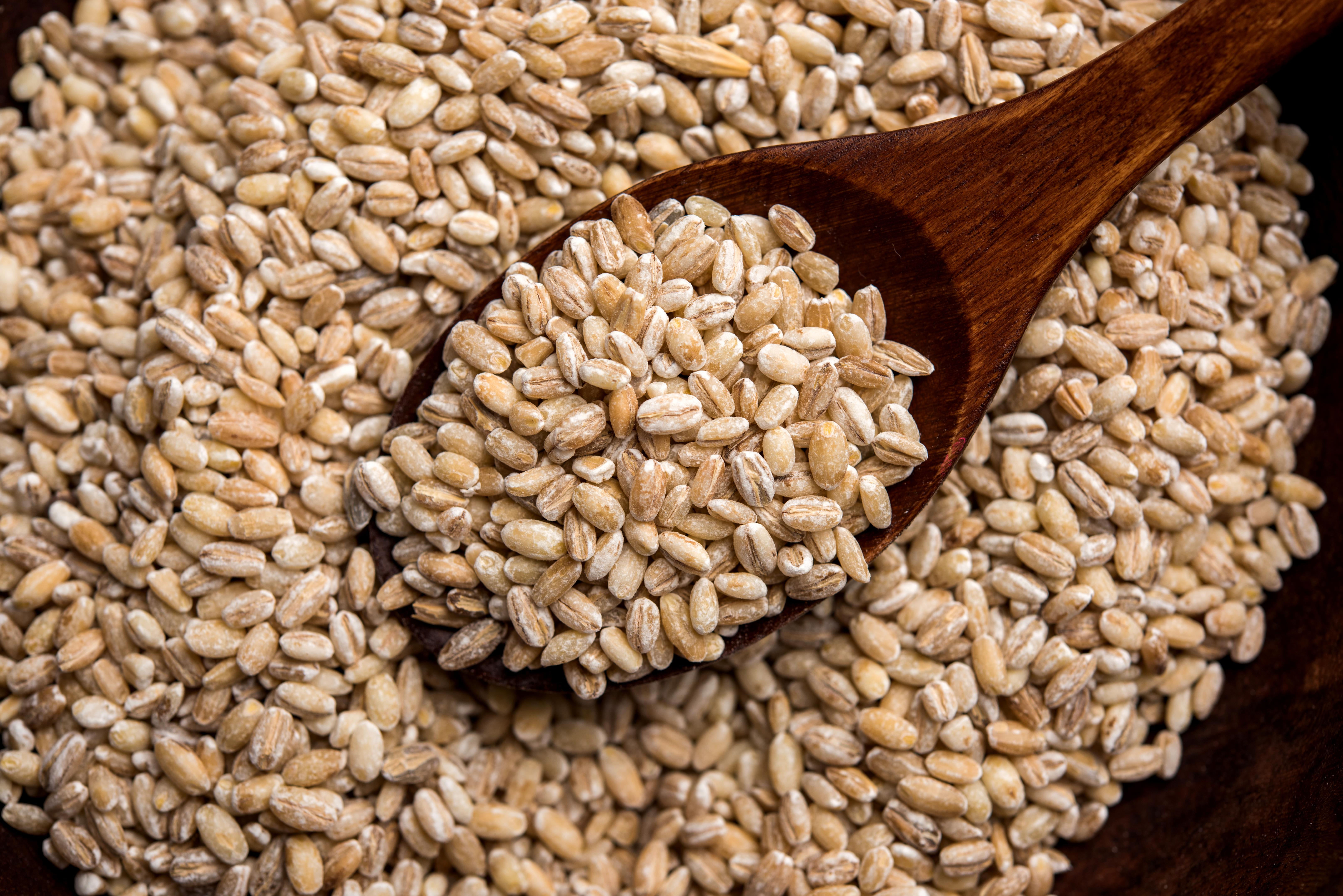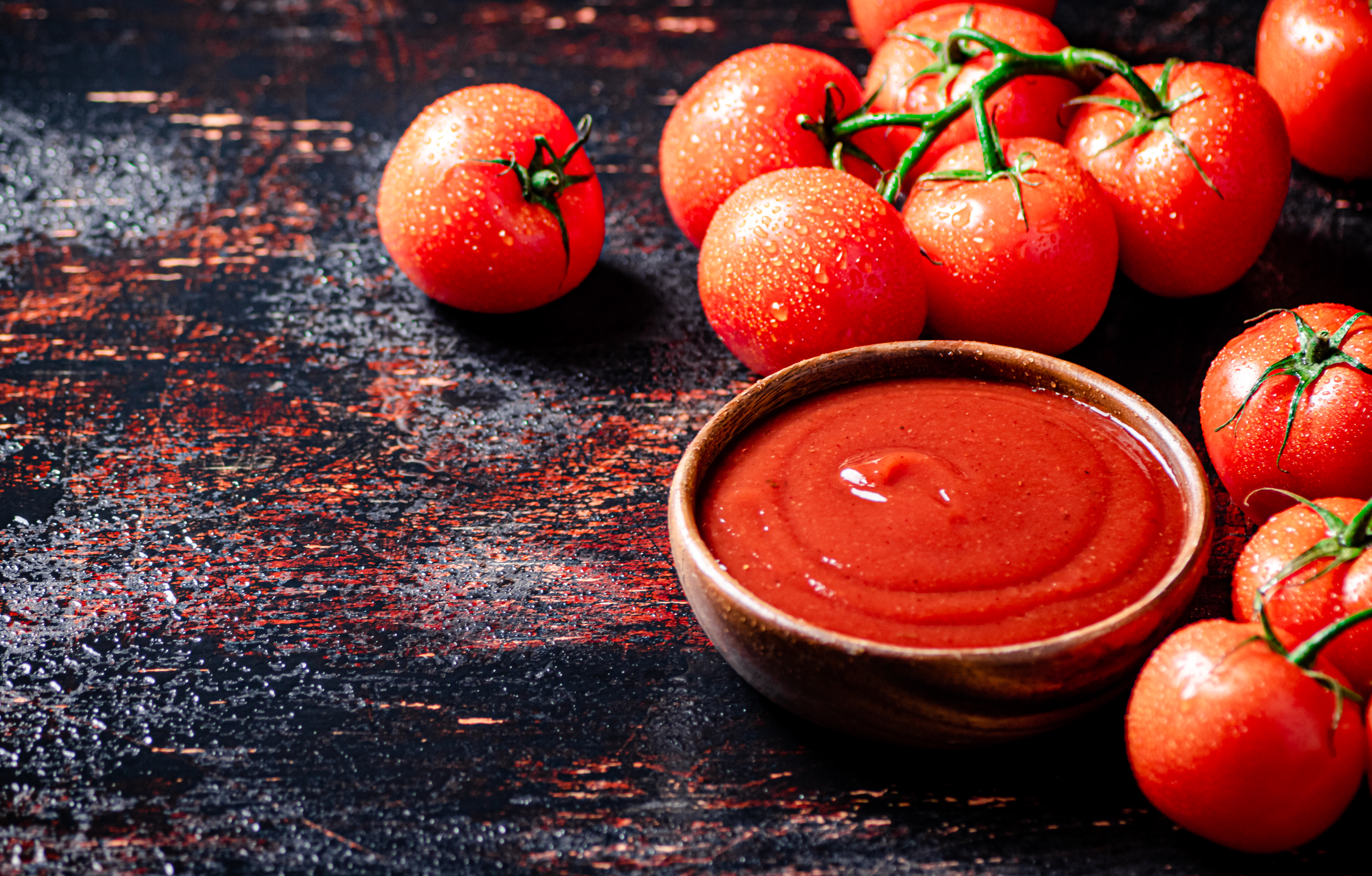22 Foods to Avoid If You Have Arthritis
Arthritis is a chronic condition that causes joint pain, stiffness, and inflammation, often worsening over time. It most commonly affects the knees, fingers, and hips, limiting mobility and impacting daily life. While there are various types of arthritis, the two most prevalent forms are osteoarthritis and rheumatoid arthritis. Managing this condition often requires a combination of treatments, including medication, topical ointments, and even low-impact exercise like pickleball or swimming to maintain joint flexibility and reduce discomfort. However, one of the most overlooked factors in arthritis management is diet. The foods you eat can either help reduce inflammation or worsen symptoms, making it crucial to be mindful of your choices. Some foods can trigger flare-ups, increase joint pain, and accelerate joint degeneration. Originally, we shared 12 foods to avoid, but as research continues to highlight dietary influences on arthritis, we’ve expanded the list to 22 foods you should steer clear of if you have arthritis. Let’s explore what to cut from your plate to better support joint health and overall well-being.
1. Fried Food

Fried food contains a significant amount of saturated fat, which is a major reason it is unhealthy. Fried food is also highly processed and contains lots of artificial preservatives and salt. All of these increase the severity of arthritis! Individuals who consume a significant amount of fried food are also at an increased risk of obesity. This is vital in connection to arthritis because obesity increases the pressure on joints, particularly the knees and hips. This increased pressure can make the degeneration of the joints much faster! Thus, individuals who have arthritis should avoid eating lots of fried food.
2. Processed Sugars

Processed sugar is found in candy, cereal, doughnuts, soda, and even condiments such as ketchup. Eating too much sugar, particularly processed sugar, causes the body to create uneven insulin levels, which trigger immune cells that cause swelling. The American Journal of Clinical Nutrition published a study that showed processed sugar increased the symptoms of 'pain, overheating, redness, and swelling' in arthritis patients. Sugars such as these will use the body's vitamins to complete the digestion process. The lack of these vitamins can worsen arthritis symptoms.
3. Dairy

Although dairy products are known to aid with increasing bone strength and durability, some arthritis patients will see adverse effects after consuming certain dairy products. Some studies indicate that proteins within dairy cause tissue irritation within the joints of individuals with arthritis. If patients with this condition notice joint irritation after consuming dairy, it may be worthwhile for them to look for alternatives. Many individuals with arthritis have turned to plant-based foods for their calcium and protein, and have experienced positive results. Some find milk alternatives helpful, while others speak with a physician about appropriate calcium supplements.
4. Alcohol

Alcohol contains uric acid. Uric acid causes a build-up of crystals that will gather within an individual's joints. It can trigger inflammation and pain. Alcohol can also have a negative reaction with some arthritis medications, such as ibuprofen and naproxen. It can also cause stomach bleeding. Individuals who take methotrexate of leflunomide increase their chances of liver damage if they consume too much alcohol while taking these medications. Gout, a form of arthritis in the fingers and toes, has been linked to the prolonged and excessive consumption of alcohol.
5. Tobacco

Although tobacco is not a food product, it can be easily ingested and is very common. Studies have shown that smoking can increase the severity of an individual's arthritis. Tobacco can also negatively affect the arthritis medication patients take. This effect makes it harder for the medication to control the inflammation and pain associated with the condition. In particular, rheumatoid arthritis is affected negatively by smoking tobacco products. Ingesting anything with tobacco will increase the likelihood of a symptom flareup, including pain and swelling.
6. Salt

Arthritis medication can sometimes cause the body to retain more sodium. Retaining excessive sodium can have a negative effect on the inflammation associated with arthritis. Salt consumption leads to the bloodstream absorbing more water than normal, almost swelling the bloodstream itself. Due to the expansion of blood vessels, this will cause increased inflammation in some joints. Nearly all canned, frozen, and convenience foods contain a lot more salt than even healthy individuals should be consuming. This means they are crucial for arthritis patients to avoid. Many individuals with arthritis experience increased inflammation and more severe symptoms if they consume a diet high in salt.
7. Oil

It is essential to note that not all oils are bad. Many of them harness essential acids and fats that actually help with the symptoms of arthritis. However, it is equally important to know that some oils can be harmful. Thus, individuals with arthritis should pay more attention to what they are consuming. Specifically, arthritis patients should avoid corn, sunflower, soy, and vegetable oil due to their high saturated fat content. American diets are very high in this type of oil, which can trigger the production of chemicals that increase swelling and inflammation. Omega-6 oils such as the ones mentioned are not to be avoided altogether. However, reduced intake may have a positive effect on inflammation. Omega-3 oils, such as the ones found in canola, flaxseed, and grape oil, can be used as a substitute.
8. Refined Carbohydrates

Refined carbohydrates can make an individual's arthritis worse by increasing overall inflammation. These foods have a high glycemic index and cause the body to produce excess advanced glycation end products, otherwise known as AGE products. These substances are what contribute to inflammation throughout the body. Some research also indicates that refined carbohydrates could be even more responsible for chronic conditions and obesity than fatty foods. Anything baked with white flour contains refined carbohydrates. This includes white rice, crackers, white bread, rolls, and the majority of baked goods. White flour is the grain that has had most of the nutrients removed during its processing.
9. Pizza

Researchers have found saturated fats can increase the overall levels of inflammation in the body, which can lead to arthritis flareups or make existing flareups worse. Most types of pizza are a high source of saturated fat, and 4.5 grams of every one hundred grams of pizza can be made up of saturated fats. For comparison, regular cheese has about 0.2 grams of saturated fats for every twenty-one grams. This means there is only about one gram of saturated fat in every one hundred grams of regular cheese. Nutritionists and dietitians have recommended that individuals with arthritis not get over ten percent of their daily calories from saturated fats. Cutting pizza out can be very helpful in achieving this.
10. Food With MSG

The research regarding monosodium glutamate (MSG) is hotly debated. Some studies have shown that MSG has no adverse health effects. In contrast, others indicate the substance can cause inflammation flareups and overall pain, which can worsen arthritis. MSG is found naturally in foods like tomatoes and mushrooms, and natural sources (in moderation) are typically fine. However, when it is added artificially to foods, MSG tends to be highly processed. Many frozen dinners and canned foods have high levels of artificial monosodium glutamate. If individuals are trying to cut MSG out of their diet, they should look for foods made with organic ingredients. Checking ingredients lists for monosodium glutamate is also a smart idea. Patients can experiment by monitoring how they feel with MSG-containing foods versus without them to see if cutting it out is helpful.
11. Omega-6 Fatty Acids

Omega-6 fatty acids are an essential part of a healthy diet. Individuals absolutely should not cut them out of their diet completely. These acids are necessary to allow the cells and body to develop and grow normally. In an ideal diet, an individual's omega-3s and omega-6 acids will be balanced. However, individuals, particularly those with arthritis, should avoid having too much omega-6 in their diet. Excessively consuming this fatty acid can cause the body to produce chemicals that increase inflammation. Many foods contain omega-6 fatty acids, such as many salad dressings, mayonnaise, vegetable oil, peanut oil, soy-based oil, grapeseed oil, sunflower oil, safflower oil, and corn oil. Arthritis patients should try not to consume any of these foods or oils in excess.
12. Aspartame

Aspartame is an artificially-produced sweetener that can negatively affect an individual's pain perception. In the past, many rumors have circulated about the effects of aspartame on the body. Many of them, like the rumor aspartame causes epilepsy, are not based on any scientific fact. However, there is research supporting the idea that aspartame may increase pain perception by triggering neurons. This idea has been associated with arthritis. Many diet sodas use aspartame as a no-calorie sweetener. It can sometimes appear in low-calorie or no-calorie mints and gum. Some sugar-free gums use aspartame, but a range of less potentially-harmful low-calorie sweeteners can also be used.
13. Artificial Trans Fats

Artificial trans fats, commonly found in margarine, fast food, and packaged baked goods, are among the most harmful substances for inflammation. These fats are created through hydrogenation, a process that makes oils more solid and extends shelf life. However, trans fats trigger systemic inflammation by increasing pro-inflammatory cytokines in the body. A study published in the American Journal of Clinical Nutrition found that trans fat consumption significantly contributes to inflammatory diseases, including arthritis. Even though trans fats have been banned in some regions, they still appear in certain processed foods under the label "partially hydrogenated oils." Arthritis sufferers should read ingredient lists carefully and avoid foods that contain these harmful fats.
14. Gluten-Containing Foods

Gluten is a protein found in wheat, barley, and rye, and while it’s most commonly associated with celiac disease, some studies suggest it may also contribute to joint inflammation. Many individuals with rheumatoid arthritis (RA) report symptom relief when following a gluten-free diet. Research published in the Journal of Autoimmunity suggests that gluten can trigger inflammation in those with autoimmune diseases. If you experience flare-ups after consuming bread, pasta, or baked goods, it may be worth trying an elimination diet to see if gluten is a trigger for your arthritis symptoms.
15. Nightshade Vegetables (For Some People)

Nightshades, including tomatoes, eggplants, peppers, and potatoes, are controversial in the arthritis community. These vegetables contain solanine, a natural compound that some believe can worsen joint inflammation and pain. While scientific evidence is mixed, some arthritis patients report relief when they eliminate nightshades from their diet. If you suspect these foods are contributing to flare-ups, try removing them for a few weeks and monitoring any changes in your symptoms.
16. Processed Meats

Bacon, hot dogs, sausages, and deli meats are all examples of processed meats, which contain high levels of preservatives, sodium, and advanced glycation end products (AGEs). AGEs are compounds that form when proteins or fats are exposed to high heat, such as in grilling or frying. Research in The Journal of Nutrition, Health & Aging indicates that AGEs contribute to oxidative stress and inflammation in the body, worsening arthritis symptoms. Swapping processed meats for lean, unprocessed protein sources like fish, chicken, or plant-based proteins can help reduce inflammation.
17. Soda and Sugary Drinks

Sugary beverages, including soda, sweetened teas, and flavored coffee drinks, are packed with refined sugar and artificial sweeteners. Excess sugar consumption is linked to increased inflammation and higher levels of C-reactive protein (CRP), a marker of inflammation commonly elevated in arthritis patients. A study published in The American Journal of Clinical Nutrition found that women who drank just one sugary soda per day had a significantly increased risk of developing rheumatoid arthritis. Choosing water, herbal teas, or infused water with fresh fruits is a healthier alternative that supports hydration and joint health.
18. High-Sodium Foods

Salt is necessary for bodily functions, but excessive sodium intake can worsen arthritis symptoms. A diet high in processed, salty foods contributes to water retention and increased inflammation, making joint pain and swelling more severe. Many arthritis medications can already cause sodium retention, further compounding the issue. A study published in Nature Communications found that high-salt diets can activate inflammatory cells in autoimmune conditions. Avoiding processed foods like canned soups, frozen meals, and salty snacks while seasoning meals with herbs and spices instead can help manage arthritis symptoms more effectively.
19. Fried and Grilled Meats

When meats are cooked at high temperatures, such as frying, grilling, or broiling, they produce advanced glycation end products (AGEs), which are linked to inflammation and oxidative stress. These compounds contribute to joint deterioration, making arthritis symptoms worse. Research in The Journal of Clinical Endocrinology & Metabolism found that reducing AGE intake led to decreased inflammation markers in the body. Opting for cooking methods like steaming, baking, or slow-cooking can help reduce AGE exposure and support better joint health.
20. Dairy Products (For Some People)

Dairy is a controversial food when it comes to arthritis. While dairy products provide essential nutrients like calcium and vitamin D, some individuals find that dairy increases inflammation and joint pain. This reaction is thought to be due to casein, a protein in dairy that can trigger an inflammatory response in some people. A study published in The Journal of Nutrition suggests that people with dairy sensitivities or autoimmune arthritis may benefit from reducing dairy intake. If you suspect dairy is a trigger, trying plant-based alternatives like almond, coconut, or oat milk may be beneficial.
21. Alcohol (Especially Beer)

Alcohol in general can contribute to inflammation, but beer may be particularly problematic for those with arthritis. Beer contains purines, which the body converts into uric acid. Excess uric acid can crystallize in the joints, leading to painful flare-ups, especially in people with gout, a form of arthritis. A study published in Arthritis & Rheumatology found that individuals who consumed beer regularly had a significantly higher risk of developing gout. Limiting alcohol, especially beer, can help reduce arthritis-related inflammation.
22. Canned Foods with BPA

Many canned foods contain bisphenol A (BPA), a chemical used in the lining of cans. BPA is an endocrine disruptor that has been linked to increased inflammation and autoimmune disease symptoms. A study published in Environmental Science & Technology found that BPA exposure can trigger the immune system’s inflammatory response, worsening conditions like rheumatoid arthritis. Choosing fresh or frozen foods over canned options or looking for BPA-free canned goods can help reduce exposure to this potentially harmful chemical.
Take Control of Your Diet and Your Joint Health

When it comes to managing arthritis, food can be a powerful ally or a hidden enemy. The wrong choices can increase inflammation, worsen pain, and contribute to joint damage. By eliminating or reducing these 22 foods, you can take an important step toward controlling arthritis symptoms and improving overall well-being. Instead of focusing solely on what to avoid, consider replacing inflammatory foods with nutrient-dense options that fight inflammation, such as fatty fish, leafy greens, nuts, seeds, and berries. Every small dietary change you make can add up to big improvements in how you feel. If you’re struggling with arthritis pain, start by evaluating your diet—because sometimes, relief begins on your plate.